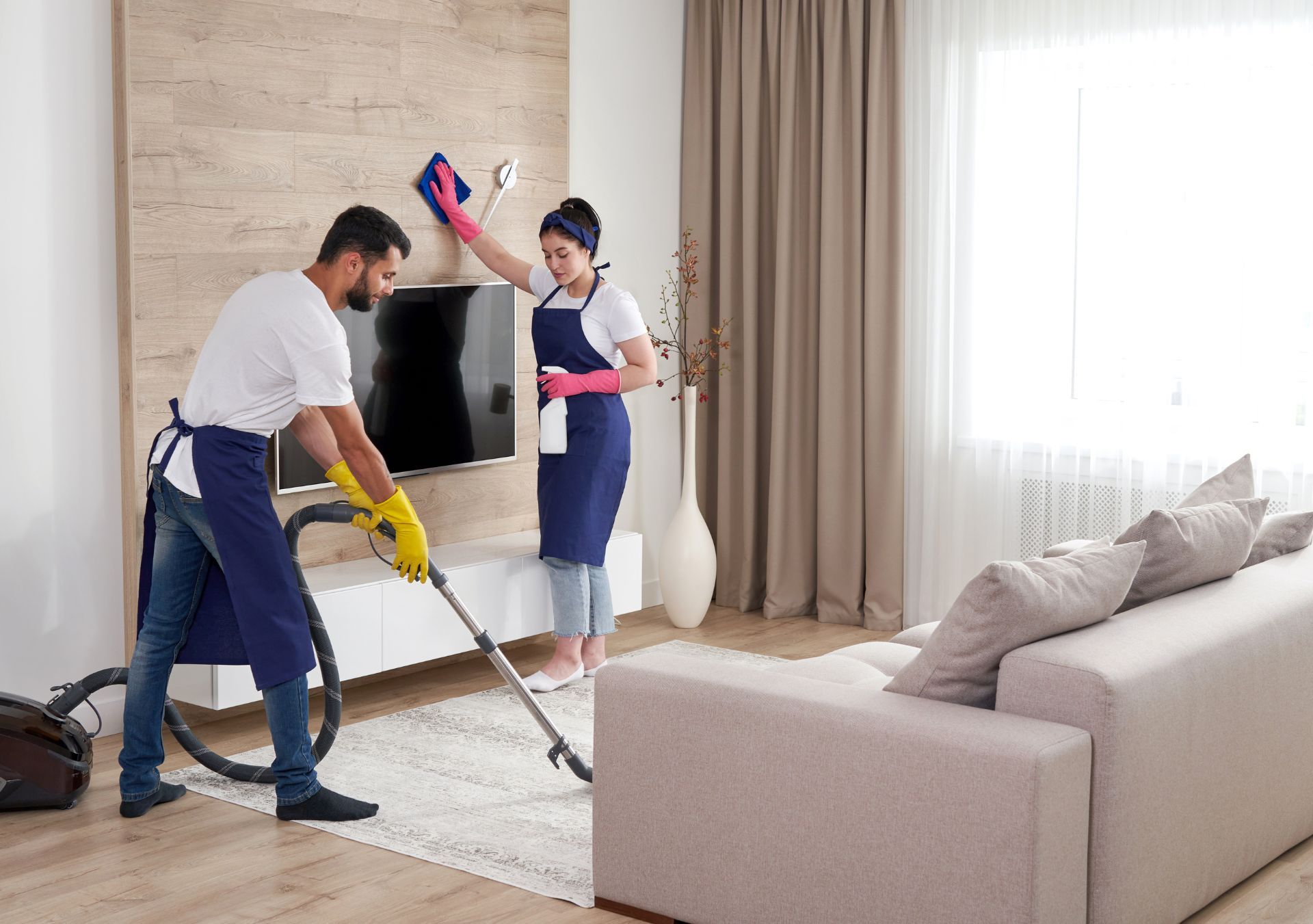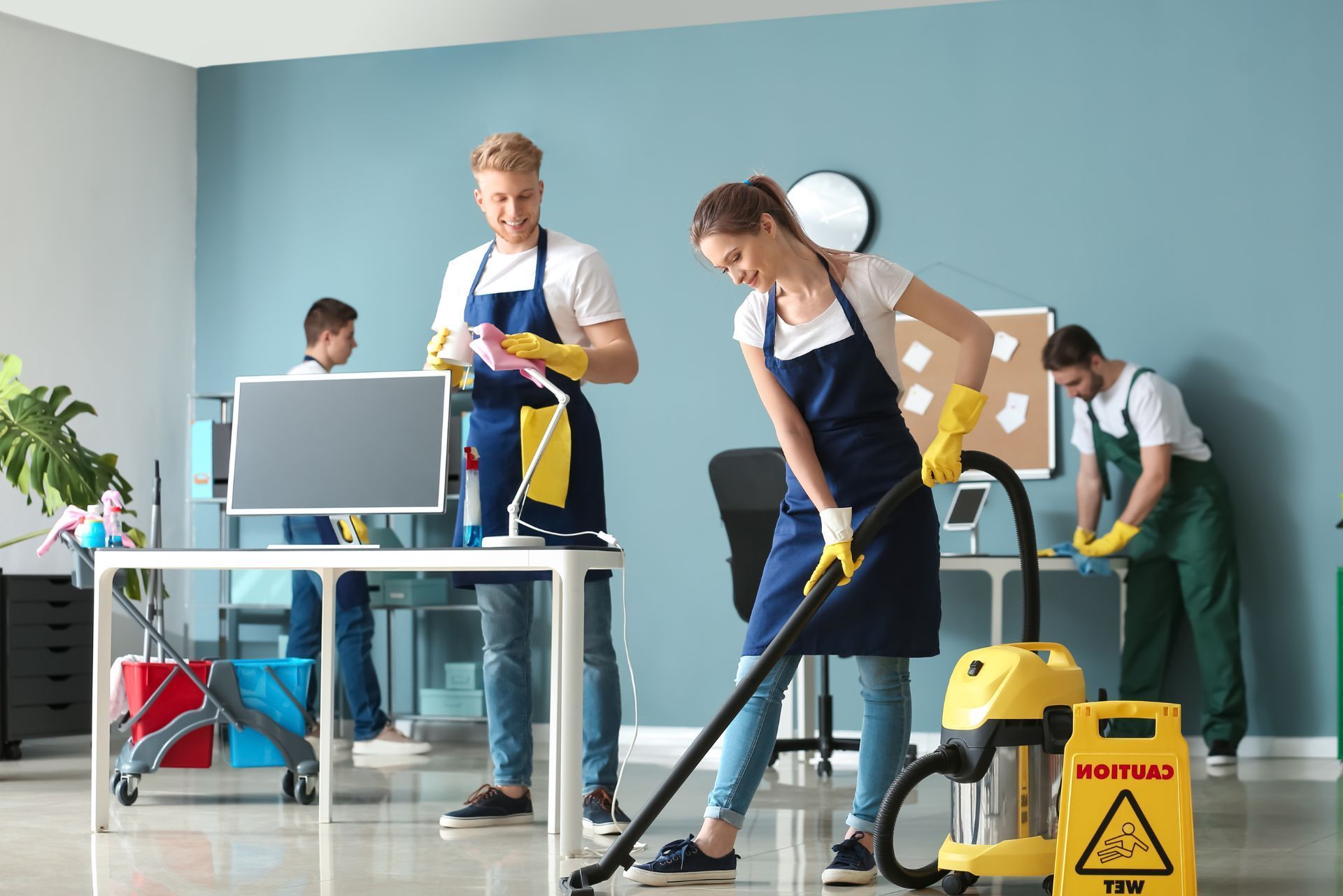Arizona Cleaning Business Insurance
See How We're Different:
or Call Us:(480) 526-3222

Most Common Business Policies
Index
Contact Us
Operating a cleaning business in Arizona can be a rewarding venture, but it also comes with its own set of risks. Whether you're providing residential cleaning services or managing
commercial contracts, having the right insurance coverage is essential. This article will explore the various aspects of cleaning business insurance in Arizona, helping you understand what you need to protect your business and your clients.
Understanding Business Insurance for Cleaning Services
Business insurance is designed to protect your company from financial losses due to unforeseen events. For cleaning businesses, this can include liability claims, property damage, and employee-related issues. Understanding the different types of coverage available is crucial for safeguarding your operations.
Types of Insurance Coverage
There are several types of insurance coverage that cleaning businesses should consider. Each type serves a unique purpose and can help mitigate specific risks associated with the industry.
- General Liability Insurance: This is the most fundamental type of coverage. It protects against claims of bodily injury or property damage that may occur while you are providing cleaning services.
- Commercial Property Insurance: If you own or lease a space for your cleaning business, this insurance covers damage to your property due to fire, theft, or natural disasters.
- Workers' Compensation Insurance: If your cleaning business employs workers, this insurance is mandatory in Arizona. It covers medical expenses and lost wages for employees injured on the job.
Why Insurance is Essential for Cleaning Businesses
Insurance is not just a legal requirement; it is a vital part of risk management. Without adequate coverage, a single incident can lead to significant financial strain. For example, if a client slips and falls while you are cleaning their home, they may seek compensation for their injuries. General liability insurance would cover legal fees and any settlements.
Moreover, having insurance can enhance your credibility with clients. Many customers prefer to hire businesses that are insured because it demonstrates professionalism and a commitment to safety. This can give you a competitive edge in a crowded market.
In addition to the fundamental types of coverage, cleaning businesses may also want to consider specialized insurance options such as Environmental Liability Insurance. This type of insurance is particularly relevant for cleaning services that use chemicals or hazardous materials, as it protects against claims related to pollution or environmental damage. Furthermore, Cyber Liability Insurance is becoming increasingly important as more businesses rely on digital tools for scheduling, invoicing, and client communication. This coverage can protect against data breaches and cyberattacks, which can be devastating for small businesses.
Furthermore, investing in insurance can also provide peace of mind for business owners. Knowing that you are protected against various risks allows you to focus on delivering high-quality cleaning services rather than worrying about potential liabilities. This sense of security can foster a positive work environment, encouraging your employees to perform their best, knowing that they are covered in case of accidents or unforeseen events. Additionally, some insurance providers offer risk management resources and training, which can further enhance your operational safety and efficiency.

Key Considerations When Choosing Insurance
Choosing the right insurance policy for your cleaning business involves several considerations. It’s essential to assess your specific needs and the risks associated with your operations.
Assessing Your Risks
Every cleaning business faces unique risks based on the services offered and the clientele served. For instance, if your business specializes in commercial cleaning, you may face different liabilities compared to residential cleaning services. Consider the following factors:
The type of cleaning services you provide (residential, commercial, specialized).
The size of your business and number of employees.
Your client base and their expectations regarding insurance coverage.
Additionally, it’s crucial to evaluate the specific environments in which you operate. For example, cleaning in healthcare facilities may require higher liability coverage due to the sensitive nature of the environment and the potential for exposure to hazardous materials. On the other hand, residential cleaning may involve risks related to property damage or personal injury. Understanding these nuances can help you select the most appropriate coverage for your business.
Comparing Insurance Providers
Not all insurance providers are created equal. When selecting an insurance company, it’s important to compare policies, coverage limits, and premiums. Look for providers that specialize in business insurance, particularly for cleaning services. This specialization often means they understand the unique risks and can offer tailored coverage options.
Additionally, consider the provider's reputation. Reading customer reviews and checking ratings from organizations like the Better Business Bureau can provide insights into their reliability and customer service. It’s also beneficial to ask for recommendations from other cleaning business owners or industry associations. Networking within the community can lead to valuable insights and help you identify providers who are known for their responsiveness and support during claims processes.
Moreover, don’t hesitate to reach out to potential insurers for quotes and ask detailed questions about their policies. Understanding the fine print, such as exclusions and deductibles, can prevent unpleasant surprises down the line. Some insurers may also offer additional services, such as risk management resources or training programs, which can further enhance your business's safety and compliance.
Cost of Cleaning Business Insurance in Arizona
The cost of insurance for cleaning businesses can vary widely based on several factors. Understanding these factors can help you budget effectively and find a policy that meets your needs without breaking the bank.
Factors Influencing Insurance Costs
Several key factors can influence the cost of your insurance premiums:
- Business Size: Larger businesses with more employees typically face higher premiums due to increased risk.
- Coverage Amount: The more coverage you need, the higher your premiums will be. It’s essential to find a balance between adequate coverage and affordability.
- Claims History: If your business has a history of claims, insurers may view it as a higher risk, leading to increased premiums.
Average Premiums for Cleaning Businesses
On average, cleaning business insurance in Arizona can range from $500 to $2,500 annually, depending on the factors mentioned above. General liability insurance typically costs between $300 and $1,000 per year for small cleaning businesses. However, these figures can vary significantly based on the specifics of your operation.
It’s advisable to obtain multiple quotes from different providers to ensure you are getting the best deal possible. Many insurance companies offer free quotes, allowing you to compare prices and coverage options easily.
In addition to general liability insurance, cleaning businesses might also consider additional coverage options such as workers' compensation and commercial auto insurance, especially if employees are driving company vehicles or if the business involves heavy equipment. Workers' compensation is particularly important, as it protects your employees in case of on-the-job injuries, which can be common in the cleaning industry due to the physical nature of the work. The cost of these additional coverages can also vary, but they are crucial for comprehensive protection.
Moreover, the type of cleaning services you provide can also play a significant role in determining your insurance costs. For instance, businesses that offer
specialized services, such as biohazard cleaning or industrial cleaning, may face higher premiums due to the increased risks associated with those activities. Understanding the nuances of your specific cleaning niche can help you tailor your insurance policy to better fit your needs and potentially save on costs in the long run.
Common Exclusions in Cleaning Business Insurance
While insurance can provide extensive protection, it’s essential to be aware of common exclusions that may apply to your policy. Understanding these exclusions can help you avoid unpleasant surprises when filing a claim. This knowledge is particularly crucial for cleaning businesses, where the nature of the work can lead to unique risks and liabilities that standard policies may not cover.
General Exclusions
Most insurance policies will have general exclusions that are standard across the industry. These may include:
- Intentional Damage: If damage occurs due to intentional actions, it will not be covered.
- Contractual Liability: If you have signed a contract that assumes liability beyond what is covered by your insurance, you may not be protected.
- Employee Injuries: Injuries to employees are typically covered under workers' compensation, not general liability insurance.
In addition to these general exclusions, it is also important to consider the implications of negligence. If a claim arises from a failure to meet industry standards or a lack of due diligence in your cleaning practices, your insurance may not cover the resulting damages. This highlights the importance of maintaining high standards of service and ensuring that all employees are adequately trained and informed about safety protocols.
Specific Exclusions for Cleaning Services
Cleaning businesses may face additional exclusions, such as:
- Damage to Client Property: Some policies may not cover damage to a client’s property unless it is specifically included in the policy.
- Pollution Liability: If your cleaning services involve hazardous materials, you may need additional coverage for pollution-related claims.
Moreover, businesses that offer specialized cleaning services, such as biohazard or mold remediation, may encounter further exclusions related to the specific risks associated with these activities. For instance, if your cleaning involves the use of strong chemicals or equipment that could potentially cause harm, you may need to seek out endorsements or separate policies that address these unique liabilities. Additionally, understanding the nuances of your policy can help you identify gaps in coverage that could leave your business vulnerable during unexpected incidents.

How to File a Claim
Filing a claim can be a daunting process, but understanding the steps involved can make it easier. Here’s a general overview of how to file a claim with your cleaning business insurance provider.
Steps to File a Claim
1. **Notify Your Insurance Provider:** As soon as an incident occurs, contact your insurance provider to report the claim. Most companies have a dedicated claims department that can guide you through the process.
2. **Gather Documentation:** Collect all relevant documentation, including photographs of the incident, witness statements, and any police reports if applicable. This information will support your claim.
3. **Complete the Claim Form:** Your insurer will provide a claim form that you need to fill out. Be thorough and accurate when providing information.
4. **Follow Up:** After submitting your claim, stay in contact with your insurance provider. They may require additional information or documentation to process your claim.
What to Expect During the Claims Process
The claims process can take time, depending on the complexity of the incident. Your insurer will investigate the claim, which may include reviewing documentation and interviewing witnesses. Once the investigation is complete, they will determine whether the claim is valid and how much compensation is warranted.
It’s essential to remain patient during this process. If your claim is denied, you have the right to appeal the decision. Review your policy and consult with your insurance agent to understand the reasons for the denial and the steps you can take to contest it.
During the investigation phase, your insurance provider may also assess the extent of the damages or losses incurred. This could involve sending an adjuster to your business location to evaluate the situation firsthand. The adjuster will compile a report that includes their findings and recommendations, which will significantly influence the outcome of your claim. Being cooperative and providing any additional information requested can help expedite this phase and ensure a smoother resolution.
Additionally, it’s wise to keep detailed records of all communications with your insurance provider. Document dates, times, and the names of the representatives you speak with, as this can be invaluable if any disputes arise later in the process. Having a clear paper trail can help clarify misunderstandings and reinforce your case should you need to escalate the matter further.
While the basic insurance coverages are essential, cleaning businesses may benefit from additional coverage options tailored to their specific needs. Here are some options to consider:
Business Interruption Insurance
This type of insurance covers lost income due to unexpected events that disrupt your business operations, such as natural disasters or significant property damage. It can help you maintain financial stability while you recover from an incident.
Commercial Auto Insurance
If your cleaning business uses vehicles for transport, commercial auto insurance is necessary. This coverage protects against accidents, theft, and damage related to your business vehicles, ensuring that you are covered while on the road.
Professional Liability Insurance
Also known as errors and omissions insurance, this coverage protects against claims of negligence or inadequate work. If a client claims that your cleaning services did not meet their expectations, professional liability insurance can help cover legal fees and settlements.
Regulatory Requirements in Arizona
In Arizona, certain regulations govern business insurance, particularly for cleaning services. Understanding these requirements is crucial for compliance and protecting your business.
Workers' Compensation Requirements
Arizona law mandates that businesses with employees carry workers' compensation insurance. This coverage is essential for protecting your employees in the event of work-related injuries. Failure to comply with this requirement can result in significant penalties.
Licensing and Permits
While not directly related to insurance, obtaining the necessary licenses and permits is crucial for operating a cleaning business in Arizona. Ensure that you are compliant with local regulations, as this can also impact your insurance coverage and claims process.
Final Thoughts
Investing in the right insurance coverage is a vital step for any cleaning business in Arizona. Understanding the different types of coverage available, assessing your specific needs, and comparing insurance providers can help you find the best policy to protect your operations.
By being proactive about your insurance needs, you can focus on growing your business with peace of mind, knowing that you are prepared for any challenges that may arise. Whether you are just starting out or looking to reassess your current coverage, taking the time to understand Arizona cleaning business insurance will ultimately benefit your business in the long run.
